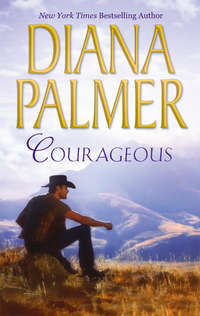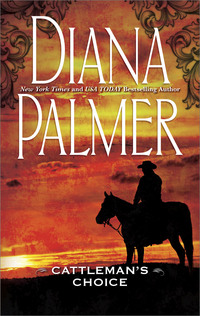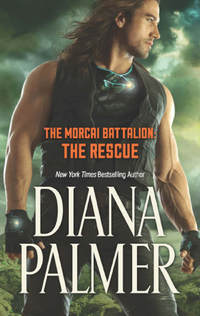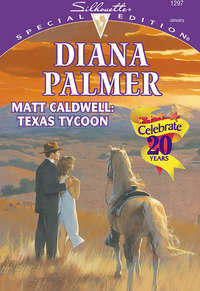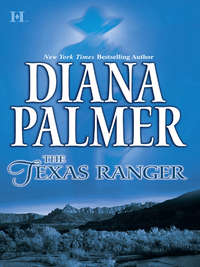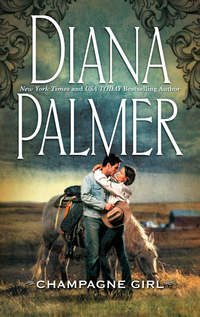
Полная версия
Lone Star Winter: The Winter Soldier
“The house belonged to an elderly woman, who was the last living member of her family,” he said. “She had to go into a nursing home. I learned the history of the house from her. It belonged to her father, who was one of the better known Texas Rangers. She raised two kids and three grandkids here. One of her grandsons was a congressman, and another worked for the U.S. Secret Service. She was very proud of them.”
“Is she living in Jacobsville?”
He nodded. “I go to visit her every other week. You might like to go along occasionally. She’s a walking history of Texas.”
“I’d like that.” She was studying him with open curiosity. He looked so different in that stark black outfit that she wondered if she would even have recognized him if she’d seen him on the street. Her husband had been in law enforcement, but even he hadn’t looked as dangerous as Cy Parks in commando gear.
He lifted an eyebrow.
“Sorry,” she murmured with a shy smile. “You look different, that’s all.”
“Think of it as a covert ops business suit,” he mused. “The object is to blend in with the night.”
“Oh, you did that very neatly,” she agreed.
He chuckled. “Get some sleep. There won’t be anybody to bother you here, and you can sleep as late as you like.”
She grimaced. “What about Puppy Dog?”
“What?”
“Puppy Dog,” she said. “He’s all shut up on the back porch…”
“I’ll fetch him at daybreak,” he said. “But if he eats one of my chickens, he’s dog bone stew. Got that?”
“You’ve got chickens?”
“Five,” he said. “Rhode Island Reds. I like fresh eggs.”
She smiled. “I like them, too.”
“A woman after my own heart.” He moved toward the door. “The windows are electronically wired, by the way,” he added with the doorknob in his hand. “If any one tries to open them from the outside, they’ll think we’re being bombed.”
“That’s reassuring.”
“So it is. Sleep tight.”
“You, too.”
He spared her a glance. “Don’t get up until you want to. I’ll haul Puppy Dog over here at daybreak.”
“He likes to chew up things,” she said worriedly.
“You shouldn’t let him eat heating pads, while we’re on the subject.”
“He can reach the shelf I keep them on,” she said. “I didn’t realize it until I saw him jump up to pull it down. By then I’d lost two and I thought I’d left them on the sofa.” She shook her head. “He’s already very tall. His father, Moose, is almost five feet tall when he stands on his hind legs.”
“He’ll be good protection for you when he’s trained.”
“He seems to be training me,” she said on a wistful breath.
“I’ll take care of that. ’Night.”
She smiled. “Thanks for rescuing me.”
“I had good help,” he told her.
She stood staring after him even when the door closed. Her life had just gone up two notches on the complications scale. She forced herself not to think of how hungry he’d made her the night they’d gone to Houston to the opera, of how much she liked being close to him. He’d been very standoffish since, so it was obvious that he didn’t like the small taste of her he’d had. She was safe with him. Safe, pregnant and a widow. She shouldn’t be thinking about kissing Cy. The thought made her uncomfortable, but she slept soundly all night long.
Harley walked in the kitchen door with a wicker basket full of eggs and a disgusted look on his face. He stopped short when he saw Lisa, in jeans and a sweat shirt with her dark blond hair in an unruly bun, making coffee.
She gave him a challenging look back. “Where’s Cy?” she asked.
“Gone to town to have his truck cleaned.”
That sounded intriguing. “Does he do that a lot?”
“Only when dogs throw up in it.”
“Oh, dear,” she said.
“Seems your puppy doesn’t like to go for rides,” he murmured with a grin. He put the basket of eggs on the table. “He’s out in the barn with the boss’s collie.”
“I didn’t know Cy had a dog.”
“He didn’t know he had one, either, until it got run over week before last,” he remarked. “He picked it up and took it to the vet. It was a stray that somebody had put out, half-starved, full of fleas, almost dead from lack of care. Amazing what some dog shampoo, flea medicine, regular meals and attention can do for a mangy old cur.” He shook his head. “For a hard-nosed man, he sure has some soft spots. He’d never make a soldier, let me tell you.” He held up a hand when she started to speak. “Don’t tell him I said that,” he added. “He pays me a good salary and he’s a fine man to work for. He can’t help it if he isn’t exactly G.I. Joe. Considering what he’s been through, I guess he’s got some grit in him somewhere.”
She almost bit her tongue through trying not to tell Harley what she knew about his soft-centered employer. But that was Cy’s business, and she didn’t want to get on his bad side when she’d only arrived.
“I rode over to your place with the boss and drove your little VW back with me. It’s in the garage. None of my business, but are you staying awhile?” he asked curiously.
“I guess so,” she sighed. She poured coffee into a cup. “A man broke into my house last night. Cy let me come over here.”
“Broke into your house? Why?”
She grew pensive. “My husband was an undercover DEA agent,” she told him. “He was infiltrating a drug lord’s organization when he was exposed and executed. Apparently the drug lord likes to set examples, like wiping out whole families of people who oppose him. I’m on his list.”
“Then you sure came to the right place,” Harley said with a beaming grin. “As it happens, you’ll be safer here than anywhere else in the county, except maybe with Ebenezer Scott.” He seemed to stand two feet taller. “I was in the Army Rangers for two years and I’ve had commando training. Nobody can slip by me.”
“I can’t tell you how much better I feel, knowing that,” she said, smiling pleasantly.
He almost blushed. “Good. Well, I’ll get back to my chores. Glad you’re okay, Miss…Mrs. Monroe,” he corrected, tipping his hat on his way out.
“Thanks for bringing my car,” she said.
“No problem.” He shot a grin back at her as he left.
She sat down at the kitchen table beside the eggs and shook her head. He didn’t have a clue what was going on. His life was apparently so dull that he couldn’t live without the illusion of bravery. She wondered how he would respond to a real threat, and hoped she never had to find out. He seemed a nice sort of man, but she had a feeling that he wasn’t quite as formidable as he made out.
Cy came in for lunch, helping himself to bread, mayonnaise and luncheon meat while Lisa poured iced tea into tall glasses.
“I can make sandwiches,” she offered.
He gave her a grin. “I’m used to doing it myself. Want a couple?”
“Just one, thanks,” she agreed and sat down at her place beside his at the small table. “I’m sorry about Puppy Dog messing up your truck.”
His eyebrows lifted under disheveled black hair. “Who told you?”
“Harley.” She gave him a gamine look. “He said that he’d be glad to protect me from potential attackers, seeing as how he’s a trained commando.”
Cy chuckled softly. “I was his age once. Seems like fifty years ago, now.”
She put her elbows on the table and propped her chin on her hands, watching him make sandwiches. “Did you swagger, too?”
“Probably. At least, I did until I saw combat for the first time. Nobody tells you that people scream when they get shot. On television they just grunt or groan and hold the part that’s been shot.” He shook his head. “It’s a lot more…vivid…in real life.”
“Were you afraid, the first time?”
“I was afraid every time,” he corrected with a level stare. “Only a fool pretends he isn’t. You learn to face the fear and deal with it, just like everyone else does.”
“It’s difficult, isn’t it?”
“Difficult to watch people die, yes,” he told her. “Difficult to live with what you do, too. I remember a young boy in Africa who was fighting the rebels. He carried a carbine in his hands and ammunition belts that probably weighed more than he did, strapped around his chest. His name was Juba.” He smiled as he worked. “He had a passion for chocolate bars. We always had a few in our packs, just a taste of something sweet to remind us of civilization. One day, Juba ran ahead of us into a building the rebels had just evacuated. We hadn’t swept it for traps and he wouldn’t stop when we tried to warn him. He broke a trip wire right in the doorway and blew himself up.” His hand hesitated on the knife as he spread mayonnaise on the bread. His eyes were solemn and quiet. “He didn’t die right away,” he added grimly. “We gave him morphine from one of our medical kits. Then I sat under a silk cotton tree with him in my arms and talked to him until he died.” His eyes fell back to his task. “He was eleven years old.”
She winced. “That’s very young to be fighting a war.”
“He’d already lost his parents and two sisters in the cross fire,” he recalled. “He was alone in the world, except for us. We’d thrown in with the government forces. They were overwhelmed by the rebels and advertised for mercenaries. My unit went in. I started with thirty men and came back with three.” He passed her a plate with a sandwich on it and started making two more for himself. “The rebels took over the capital and formed a government of their own. It stood for two months be fore outside troops joined forces with the overthrown government, moved in and took back possession of their country. Before they did, ten thousand people were shot or blown up in the streets.”
“I’m sure I wouldn’t make a good soldier, even if Harley thinks he would,” she remarked somberly.
“I wanted to make enough money to retire while I was still a young man,” he mused. “I planned to come back home, buy a ranch, get married and settle down.” He finished his own sandwiches and took a sip of his iced tea. “It almost worked. But along the way, I helped a government agency get hard evidence on that drug lord Lopez,” he said, searching her eyes. “As I mentioned a while back, he had my house in Wyoming set on fire. The hitch was, my son was supposed to be rescued before the incendiary device was placed. Lopez’s henchman didn’t think one kid more or less would matter.” He traced an invisible pattern on his coffee mug. “The only consolation I had was that Lopez had the assassin eliminated for that slipup. He doesn’t kill children.”
“I’m so sorry,” she murmured, watching him.
“So am I. But all the regrets in the world won’t bring back that little boy.”
His face was harder than rock. She sketched it with her eyes. “You can help me take care of my little boy.”
He glanced at her. “What makes you think it’s a little boy?”
“Wishful thinking, I guess. I love baseball and soccer and working around the ranch. I know girls can do those things, too, but I’d love a son.”
“You’d love whatever you get,” he chided.
“Yes. I would.” She grimaced.
“What’s the matter.”
“I don’t know.” She laughed nervously. “I have these mild cramps sometimes. I read a book about being pregnant, and it said some women have fleeting cramps during early pregnancy.”
He scowled. “That doesn’t sound good.”
She picked up her sandwich. “Maybe it’s just nerves. It’s been a rough few weeks.”
“Sure it has. But if those cramps get any worse, you go see a doctor.”
“I will.”
After lunch, he took her out to the huge, airy barn to see Puppy Dog, who was comfortably contained in a huge stall with a drain in the concrete floor, and fresh wheat straw making a comfortable place for him to sleep.
“Hello, Puppy Dog,” she said, going into the stall to pet the frisky, enormous puppy. “Did you miss me?” She glanced past him at the clean containers of dog food and water, and the dog toys liberally scattered along the wall. “Maybe not, considering all the toys.”
“Dogs need something to play with. Keeps them active and healthy. I got half a dozen for Bob, too.”
“Bob?”
He motioned to her. She gave Puppy Dog a last hug and went out of the stall. He whined for a minute and then went back to pick up a ball he liked.
In the stall next door was a huge white-and-tan collie with an intelligent face and soft brown eyes. There were still traces of malnutrition in the coat, but Bob was beginning to shape up into a beautiful animal.
“He’s a doll,” she said, smiling at him.
“She’s a doll.”
She hesitated. Turned. Raised her eyebrows.
“She’s a doll,” he repeated.
“Bob is not a female name…”
“If a boy can be named Sue, a girl dog can be named Bob.”
“You listen to too many Johnny Cash songs,” she accused with a chuckle.
“He’s great, isn’t he?” he asked. “‘A Boy Named Sue’ was great, but I loved everything he ever recorded.”
“I have two of his albums myself,” she confessed.
He grinned. “I knew you had good taste.”
She liked the way his eyes twinkled when he smiled. He was something of a curiosity around town, because he had a reputation for being a hard case and unsociable. But here, on his home ground, he was relaxed, pleasant, even amusing. She wondered how many people ever got to see this side of him. Probably not many.
“What happened to that man who broke into my house?” she asked abruptly.
“Sheriff’s got him locked up,” he told her. “We left the crowbar right where it dropped. The man wasn’t even wearing gloves. There are enough fingerprints on it to convict him. He’ll make bond, of course, and then he’ll go home.”
“Home?”
He turned toward her. “A man wearing an Armani suit drove up here a few days ago and introduced him self as my new neighbor. There’s a honey packing ware house on my border. But it’s not honey they’re distributing, if you understand what I mean.”
She stilled. “Drugs?”
“Raw cocaine,” he replied. “Or, rather, cocaine paste. At least, that’s what we suspect they’re stockpiling in that warehouse.”
“Here, in Jacobsville?” she gasped.
“Right here,” he said.
“Then tell the sheriff and let him send some men out to arrest the owners!”
“They won’t find cocaine if they do,” he said carelessly. “In fact, I’d bet my boots that they’ll phone in a tip about themselves just to draw the law out there to check around. And while they’re checking, all the honey in the jars will be real honey, and even a drug-sniffing dog won’t find a trace of cocaine. Having searched the place once and found nothing, local law enforcement will logically hesitate before they go back out there a second time. At least, not without some concrete evidence of malfeasance. It’s easy to get sued for harassment, and believe me, Lopez would howl at the idea of taking our sheriff to court over it.”
“You sound very cynical,” she told him.
“I know how these people operate. In my checkered past, I’ve dealt with drug dealers, gunrunners, diamond smugglers, hit men…”
Her eyes were growing wider by the second. “You outlaw, you.”
“Count on it,” he told her. “I did what the job called for. Wars make strange bedfellows. Got to have guns and ammunition, you know, not to mention explosives, communications equipment, medicines. You can’t walk into the nearest superstore and buy those.”
“You can buy guns,” she began.
“Registered guns,” he emphasized. “They’re required by law to do a background check before they sell a gun, and there’s a waiting period. If you know where to go, you can get everything from Uzis to C-4, and no waiting.”
“I had no idea,” she murmured, shaking her head.
“It’s almost impossible to shut these drug cartels down. They are run on a corporate structure. In a sense, they’re multinational corporations. They have a hierarchy, complete with divisional managers and regional distribution networks. When you understand the way they work, you also understand why it’s such an uphill battle. You can’t arrest every gang member in the country. That’s what it would take to stop it. And even then,” he added, “there would still be dealers. You know why? Because where there’s demand, there’s supply. As long as there are people willing to pay for illegal drugs, there will be people who sell them.”
“That’s very demoralizing,” she pointed out.
Конец ознакомительного фрагмента.
Текст предоставлен ООО «ЛитРес».
Прочитайте эту книгу целиком, купив полную легальную версию на ЛитРес.
Безопасно оплатить книгу можно банковской картой Visa, MasterCard, Maestro, со счета мобильного телефона, с платежного терминала, в салоне МТС или Связной, через PayPal, WebMoney, Яндекс.Деньги, QIWI Кошелек, бонусными картами или другим удобным Вам способом.


